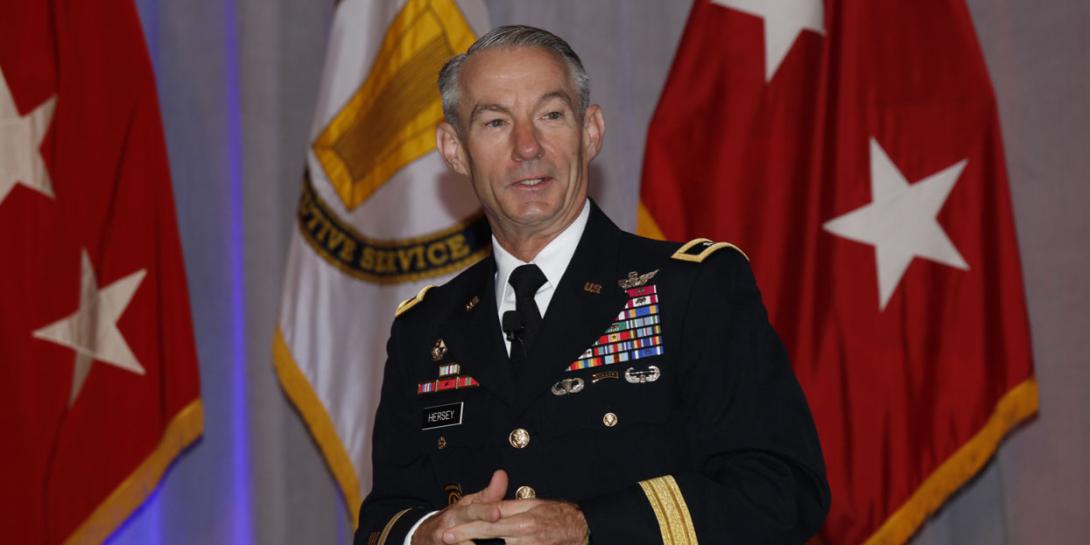Army Cyber Center of Excellence May Change Name
Maj. Gen. Neil Hersey, USA, commander, of the U.S. Army Cyber Center of Excellence and Fort Gordon, said the center could potentially change its name, but that close cooperation among the centers of excellence essentially already provides the benefits of an information warfare center of excellence.
The change—if it happens—would follow the lead of the Army Cyber Command. Lt. Gen. Stephen Fogarty, USA, who leads Army Cyber Command, has been pushing to change the name to Army Information Warfare Operations Command. The service’s centers of excellence fall under the U.S. Army Training and Doctrine Command (TRADOC).
Hersey made the remarks on the third day of the AFCEA TechNet Augusta 2019 conference. Responding to an audience question about a potential name change, Hersey said, “I’ll give that a qualified maybe and likely.”
MG Neil Hersey, commander, @ArmyCyberCoE, & Fort Gordon, says the Cyber Center of Excellence could possibly be in for a name change to an Information Warfare CoE, following Army Cyber Command's likely change to Information Warfare Command.#AFCEATechNet
— George Seffers (@gseffers) August 22, 2019
If the name does change, the focus will remain largely the same, Gen. Hersey indicated. “Under TRADOC, we have multiple centers of excellence, and all the centers of excellence collaborate under Gen. [Paul] Funk’s leadership. We’re already thinking that way. We’re already re-engineering our education curriculum to make sure that we holistically educate our leaders on all the aspects of operations in the information environment,” he said.
The Mission Command Center of Excellence is responsible for information operations. “We have a very good relationship with them. There’s really no daylight in bringing them together. We’ll see what the ultimate decisions are,” he answered. “The power of TRADOC with its functionally aligned centers of excellence being able to work together is going to get this right regardless of what decision is made at the institutional level.”
During his prepared remarks, Gen. Hersey said the Army must “widen the aperture and think beyond just information operations, beyond just cyberspace operations, or even the adversary’s actions in information warfare. “The information environment is much broader in space and time. Instead, we need to direct our thinking toward something bigger: operations in the information environment,” he said.
He also offered several “big ideas.” First, for multidomain operations, the goal is prevailing in competition. Second, “To prevail in competition, we must seize the decisive advantage in the information environment to create maneuver space there across multiple domains and across the electromagnetic spectrum.”
MG Neil Hersey, commander, @ArmyCyberCoE, & Fort Gordon: The goal in multidomain operations is to prevail in competition.#AFCEATechNet
— George Seffers (@gseffers) August 22, 2019
Third, the service must remain actively engaged in the information environment to expand the competitive space and provide commanders with options while setting conditions to transition to conflict, if necessary. Fourth, the service must continue to integrate and converge to optimize those capabilities across the information environment.





Comments